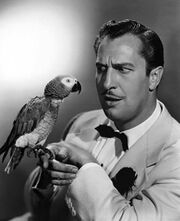Accountant
An accountant is a professional who sits in an office all day doing a few sums. Most college students aspire to be accountants, as playing on a computer is cool, though it would be cooler if they paid you to use World of Warcraft instead of Excel.
College students with physical gifts do not aspire to be accountants, and may wind up hiring a couple. If being boring were an Olympic sport, accountants would always take home the gold.
Dictionary definition
Webster tells us that an accountant "understands the cost of everything and the value of nothing."
It is not clear why we should give such credence to Webster, apart from the fact that he has eight accountants working for him: Webster has to go stronger to the hoop and learn to box out his man. At any rate, it is not true that accountants understand the value of nothing. For example, they intimately understand the value of having the total at the bottom of the left-hand column equal the total at the bottom of the right-hand column, just as line employees at McDonald's understand the value of putting the hamburger in the Styrofoam box before handing it to the customer. To mix metaphors, it is their bread and butter.
Even the best accountant wishes he were an actuary. Accountants merely claim to be able to reach an accurate description of the past — and, on the balance sheet, the present. Actuaries claim to be able to capture the future in numbers. That is obviously where the big bucks are. However, many people who use the word "actuary" are merely demonstrating their difficulty with "l" while explaining at a party their complicated new job of junior clerk.
Types of accountancy
Accountancy is a profession. Accountancy is also a methodology, which is the method the members of that profession profess to be doing all day with their heads stuck in those spreadsheets.
Accounting, the methodology
The methodology of the profession is to measure, disclose, or provide objective assurance about financial information. This helps managers, investors, tax authorities, tax dodgers, and other decision-makers and decision-evaders allocate their resources.
"Methodology" is a word (adding Greek -λογία, -logia, to something that wasn't Greek in the first place) meaning the study of method. Methodology, then, is the study of method; or perhaps, to quote Wikipedia, "a pretentious substitute for the word." A lot of people, a lot of whom are pretentious, study the accounting method who personally couldn't add two numbers to save their lives. They are called the Financial Accounting Standards Board. Methodology is distinct from method-ology-ology, the study of the study. Professionals of the latter are called Congress and cannot tie shoelaces.
Accounting's specific methodology is double-entry bookkeeping. This embodies the principle that every dollar amount should appear identically in two columns on the page. Then, once the sum of the left column equals the sum of the right column, the page "proves." (It is the same in the IAS except the amounts are pounds sterling.) "Proving" a page of numbers is like showing your boss a page of COBOL and having him conclude that the program works because a few of the words are English.
The methodology is useful even for non-financial information. Accountancy is required in most legislatures to count votes for or against a proposal, to ensure that the leadership is spared the embarrassment of moving a bill that is certain to crash and burn. Accountancy is useful in farming, even on the non-financial side of the operation. Contrary to the old saw, successful farmers do count their chickens before they are hatched. Unhatched chickens, however, are pro-rated. On the other end of the food chain, the same methodology is used in most chicken restaurants, even though there is no accounting for taste.
Baseball is called the sport of accountants because the sporadic real-world excitement is reduced to boring numbers, and because every box score must be "proved." Proving the box score does not prove that it describes what happened; only that it doesn't show ten runs scoring when no one ever reached base. Likewise, the accountant never guarantees that his figures are accurate; only that they are arranged neatly enough to please the FASB. The other, more useful, guarantee requires auditors, which cost extra.
When accountants become old and no longer able to "prove" a spreadsheet, remedies are available. The most popular of these are 86 Proof.
Accounting, the profession
An Accountant, or Qualified Accountant, or Professional Accountant, or Certified Public Accountant, or Chartered Accountant, or Accountancy Practitioner, is a certified expert in the laws of many countries. Just as no one but a licensed medical doctor has the legal ability to set a bone, and no one but a member of the Bar may legally bully your neighbors until they sign away their rights, members of these professions have the legal right to exclude others from doing sums for pay.
Accountants originally worked only in public practice, selling services to individuals and businesses. As the cobbler would hang a shoe outside his shop, the accountant would hang a standard deviation above the front door and place an abacus in the shop window. In these days before the computer, the tool of the trade was ledger paper. This is graph paper in plaid. It suggests that accounting came from Scotland, though if Scots could count, they might not have joined Great Britain, and there certainly wouldn't be all those undrunk pints on the bar at closing time.
Today, many accountants also work in corporations and government. They get a predictable paycheck every two weeks just for studying and reciting the corporate policy manual. They never get a bonus, and they never forget it. They know that the only people less likely to move up to the executive suite are manufacturing supervisors. Corporate accountants all believe that any rulebook could be better if it were twice as big, and that everyone would keep making the same amount of money every two weeks. That is, they have all forgotten their roots, and nearly all are ready for a career change into elective politics.
Corporate accountants busy themselves learning rulebooks such as those of the Financial Accounting Standards Board (FASB), including monthly addenda, and wrestling with ponderous questions such as whether that new dollop of cash is properly credited to March or to April; and when the company loses money again this year, whether to call it a "non-recurring event" or an "adjustment to reserves" or a transfer from paid-up capital to Thin Air.
In the United States, the Certified Management Accountant (CMA) title uniquely has no statutory basis. This means that Americans can do cipherin' for pay and will not necessarily go to prison. However, anyone who gives them the pay may go to debtors' prison, when the stockholders sue for putting the books in the hands of someone who is not a member of the Guild. Individuals in this profession so signify by saying, "Ah reckon."
Accounting in the Top 40
Accountants have figured into modern music, as the record labels believe it will sell better than lyrics that depend on less familiar themes such as sex and drugs. Many rock stars, such as Ozzy Osbourne, Iron Maiden, Metallica, McFly and the Cheeky Girls have recorded songs about accountancy. Many of Osbourne's albums have criticized accounting, although some Christian groups see it as glorification. Iron Maiden voiced their concern over the treatment of deferred taxation under IAS 12 in the song Too Much Substance over Form. The Rolling Stones once recorded a song called Sympathy for the Accountant.
Accountants in religions
Accountants are classified as demons in many religions: major enough to eat men's souls, but without fully grown horns or cloven hooves. The Bible portrays them as rebellious beings who are the enemy of God and man. A splinter sect called the Church of Accountancy believes that, one day, the true accountant will arrive, carrying a stone with stigmata, or at least a spreadsheet that proves on the first try.
Accountants have been depicted in many ways throughout history. A popular image from Greek mythology is of a horned, hoofed, goat-like monster holding a calculator. In modern times, the goat-like image of the accountant has been adapted into a more human-looking form of a gray, dull creature armed with a briefcase.
Other accountants

In Britain, a Lord-wannabee who has not achieved the noble title of Count is often described as a-countant. Currently, everyone in Her Majesty's Cabinet is a-countant, and no one is accountant, which may account for the nation's fiscal performance, as few are even accountable. Lord Wannabee himself has promised to bring a-countability to Westminster's upper chamber, the House of Wannabees.
Across the water, an accountant is also a sheet of canvas suspended by poles to shelter the livestock. The use of these devices, which the pioneers simplified to 'cowtents, was seen in How the West Was Won, one of Hollywood's early celebrations of the animal rights movement. When the Injuns went on the warpath, the pioneers "circled the wagons" for safety, after circling the 'cowtents proved unacceptable to moviegoers. However, the producers of Three Amigos as well as the three Atlas Shrugged movies did circle the accountants to hide behind them.
See also
| Featured version: 15 April 2014 | |
| This article has been featured on the main page. — You can vote for or nominate your favourite articles at Uncyclopedia:VFH. | |






